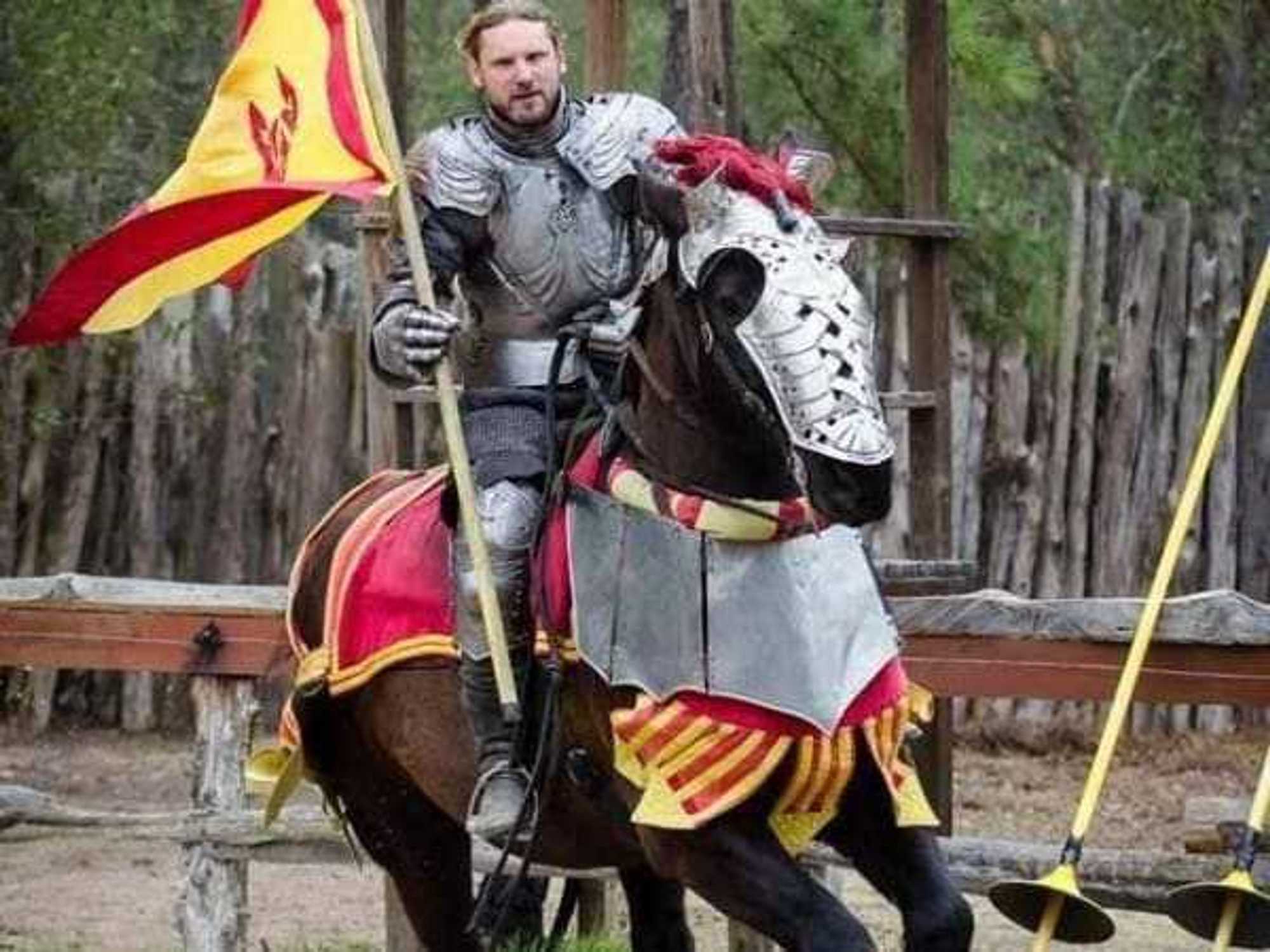Austin Film Festival
Quick hits: The good, the bad and the behind-the-scenes at Austin Film Festival— Wednesday, October 26

 Photo courtesy of Austin Film Festival
Photo courtesy of Austin Film Festival
As the 18th annual Austin Film Festival takes over our town, bringing hundreds of screenings (and more than a few late night parties) through October 27th, CultureMap contributors are busy trying to catch as many features, documentaries, shorts and panels as possible while also keeping up with festival news to help you navigate the lines (and, of course, plenty of celebrity gossip). Every day, we’ll be recapping our AFF highlights: films we’re begging you no to miss, tips for planning your week and the you-had-to-be-there moments you may have missed.
Day Seven: Wednesday, October 26th
The good:
The longer film Cataplexy, directed by John Salcido, has a stuttering beginning, as a man opens his door to a surprise visit from an attractive, long-lost high school friend. Surprise! He called an escort and by some miracle, she's the lady assigned to visit him. Despite the shaky premise, the actors both deliver warm, likeable performances so when the guy confesses that he has to hire call girls because of an unusual disease, we're open to whatever strangeness is coming. Turns out he has cataplexy, a rare condition that triggers paralysis and unconsciousness when the patient feels strong emotions, in this case love. If he makes a real connection with someone, he'll freeze up and pass out. She's sympathetic and they have a lovely evening together, start to connect and then... not to give it away, but this was the only film of the evening that could possibly be expanded into a full-length feature. It has the perfect ending for a short film, but it would be fun to follow this new romance for another seventy-five minutes or so until they arrive at a happy ending. [K.C.]
Pass The Salt, Please, from Shorts Program 8, opens with a Betty Friedan quote and a Willie Nelson tune, but it seems to take its primary inspiration from Muhammad Ali, by performing a fake-out rope-a-dope that The Champ would be proud of. In its 13 minute runtime, it begins with the blandest of premises: an old married couple who bickers and can’t stand each other. But one you’re settled in for more of the same “married life is hell” routine, the short veers wildly into unexpectedly ribald territory. There’s no need to spoil it further, but suffice it to say that you’ll never look at Max Fischer’s dad or Daniel Faraday’s mom (did we mention that the two-person cast is surprisingly outstanding?) in the same way. [D.S.]
Alexander Payne's highly anticipated The Descendants begins with far too much misleading voiceover. Star George Clooney, playing a man trying to deal with his two daughters after his wife is rendered comatose in a boating accident, plays the role so muted at first, and narrates his motivations instead, seeming to set up the film as no more than a glossy tv-movie. But it turns out to be almost a stylistic misdirect- as soon as a key piece of information about his wife's past is revealed, The Descendants shifts abruptly into a masterful unwinding of tension, resentment, and regrets that left nearly the entire audience sniffling by the end. It helps that after this same moment, the voiceover never returns. Clooney has finally found his Oscar homerun role, something that lets his slowly unravel the veneer of charm he brings to every role (incidentally he plays a millionaire that lives in Hawaii), something that Up In The Air hinted at but barely had time for. Clooney finds that time in the loose patience Alexander Payne's patient direction: graduating from the poignant but less weighty Sideways, Payne has honed his unique skill to mine laughter from misery simply by letting scenes of raw discomfort linger for several beats longer than most directors would dream of. With a strong supporting cast, beautifully shot Hawaiin setting, and a devastating but serene climax, The Descendants is unquestionably one of the year's best films, regardless of the awards it takes home. [D.C.]
Another winner from the Wednesday night Shorts Program was Spit, a fun slice of well shot, high concept filmmaking that fit its short format perfectly. Spit is a fun little slice of Apatovian-style fun, with Brett Ryback as a likeable everyman who’s unable to kiss a girl after a traumatic childhood experience during which a bully spat in his mouth. It’s the perfect sort of story to tell in 11 minutes, demonstrating assured filmmaking from first-time director Benjamin Hayes, a writer’s assistant on True Blood, and some promising acting from Ryback and Sienna Farrall, who plays the girl of his dreams. [D.S.]
TwiLife (Victoria Lee Rudd) was the only documentary in the program. It chronicles the life perspectives and stories of about twenty senior citizens, as the filmmaker asks off-camera questions like, “Would you want to die while having sex?” She gets some funny and raunchy answers as the women discuss their still active sex drives and the men discuss masturbation and Cialis. In the first shot, an interviewer asks about sex but the older woman on camera keeps hearing the word “death” instead. It's a telling moment, as this short film runs the gamut from sex to love to death, letting the subjects reminisce and philosophize about each in turn. One woman, in a fantastic sweatshirt with a little fox appliqued below the word “Foxy”, especially stands out as the funky old lady all of the twenty-something hipsters are trying to look like. Without a solid through line to anchor it, TwiLife reaches a saturation point with talking heads and starts to meander. While the people onscreen are compelling at first, the film needs a more structured narrative in order to hold the audience's attention after the first ten minutes. [K.C.]
The bad:
We've got nothing against low-budget, independent filmmaking as a rule -- just the opposite, in fact, especially when the filmmakers work hard to find ways to make a dollar out of their fifteen-cent budget, like, say, Austin High does. But when the first thought you have upon the opening scene of a film is, "That looks cheap," you've got a problem. It's a problem that Let Go struggles to overcome, with a bland color palette, uninspired cinematography, poor lighting, and distractingly inconsistent sound dominating the viewing experience. It'd be easier to write that stuff off as the challenges that an underdog faces if the movie weren't positively stacked in the cast department: when you've got a single actor with a dozen Golden Globes and Emmys in your film, as Let Go’s Ed Asner does, making him—and Community’s Gillian Jacobs, and comedian Kevin Hart -- look bad is the sign of a bad movie. Let Go stars David Denman (The Office) as a depressed parole officer whose three new cases—the aforementioned trio of talented actors—spice up his life. The problem is that the script doesn't give any of the actors a real chance to develop chemistry with Denman, and his character is so poorly sketched (we don't learn anything about him besides what he does for a living until half an hour into the picture) that it's impossible to empathize. Which wouldn't necessarily be a problem, since the movie is at least partly meant as a comedy—except the dialogue is never particularly funny, and sight gags like Kevin Hart in a hot dog costume tend to burn out their appeal quickly. Let Go is a cheap-looking film with a dull script that wastes the talents of a gifted cast. This thing was just loaded with problems. [D.S.]
What do you get when you cross Adaptation with The Hills Have Eyes? A mess, it turns out. Director Justin Ostensen tries to make a heady, self-referential mixture out of Signe Olynyk's script, a "based on a true story" tale of the time she locked herself in a meat locker to cure writer's block. Edward Furlong plays a screenwriter attempting the very same thing, that quickly loses the border between reality and the horror script that he's working on. Horror icon Michael Berryman (from the original The Hills Have Eyes) does his best to liven up the horror sequences with his distinctive physicality, but ultimately the films is bogged down in a mess of self-indulgent metaphysics, and a character (Kristin Booth) with a grating, student-film-version-of-Fargo midwestern accent. [D.C.]
Sack Lunch (Jacqueline Gault) opens like a musical but instead of singing, there's a horrifying lunch that begins with the coffee pot dipped in the toilet bowl. It gets worse from there, and the film lovingly lingers over shots of the kitty litter box and of a scorned wife hocking phlegm into her soon to be ex-husband's sandwich. The film goes to such lengths with the disgusting lunch making, that it's almost a letdown to realize it's for her crappy husband, who doesn't even eat it onscreen. It all feels like a big buildup to nothing, as if this scene was taken out of context from a larger film. The gross out factor is a treat, if you're into that sort of thing and the wife's maniacal glee in rubbing sandwich bread on her cat's ass creates an effective parody of the love-as-food metaphor that gets tossed around so often. [K.C.]
The behind-the-scenes:
It’s worth remembering the existence of the shorts programs when planning your AFF schedule. Like the features, they’re often hit-or-miss, but unlike the features, even the most excruciating of these films are done in less than half an hour. It’s a good palette cleanser to make sure you see at least a few minutes of something good in between wildly uneven features. [D.S.]
The more crowded screenings at the Paramount found people adjusting their posture, placement, and head position for the best look at the screen. Don't sit right behind the first balcony isle, or the railing will be right in the middle of the screen (unless you're six feet tall), and too far into either wing and the old-fashioned luxury boxes will take up part of the sides. For screenings without balcony seating, avoiding the very back rows is important, otherwise the top of the screen will be cut off by the angle of the ceiling. It's a distinctive flavor to the hunt for the right seat, in a beautiful but unique venue for cinema. [D.C.]
